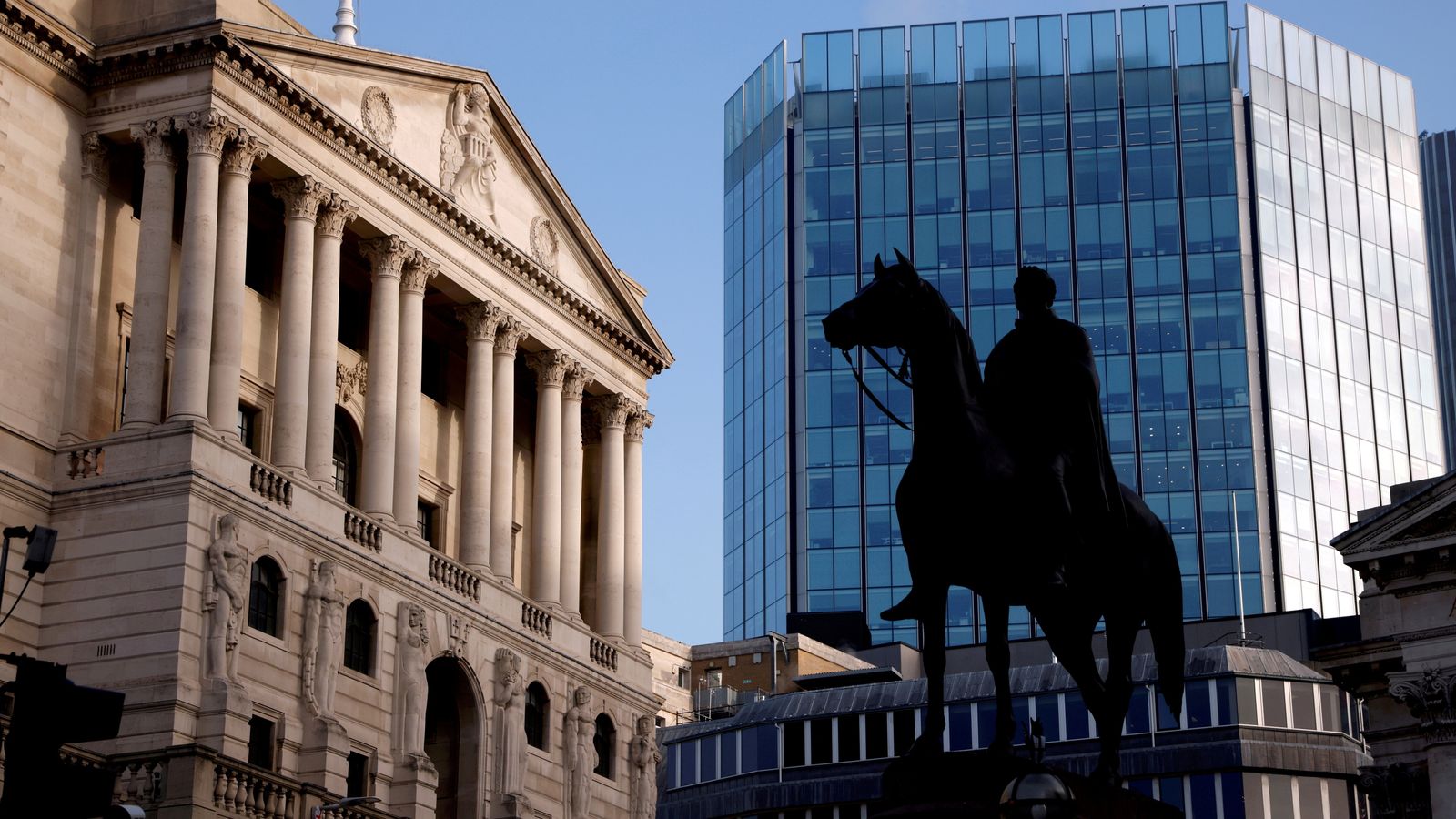The Treasury is to name a quartet of new directors to the Bank of England’s governing body as debate rages about the central bank’s remit under a new Conservative prime minister.
Sky News has learnt that Nadhim Zahawi, the chancellor, has signed off the appointments of four new members of the Court of the Bank of England, including the former investment banker Lord Jitesh Gadhia.
Soumen Das, the finance chief of industrial property group Segro and a non-executive director of Next, and Sabine Chalmers, BT Group’s general counsel, are also understood to be joining the central bank’s board.
The other appointee is said to be Tom Shropshire, Diageo’s general counsel and company secretary, according to a source close to the process.
The shake-up, which could be announced in the coming days, comes just weeks after the former Nationwide chairman David Roberts was named as the Court’s next chair.
Mr Roberts will bring decades of experience in financial services to the Court during one of the most crucial periods in the Bank’s recent history.
The appointment of members of the Court requires the approval of the Queen and the recommendation of both Mr Zahawi and Boris Johnson, the outgoing prime minister.
Slower inflation growth eases pressure on US Fed to hike interest rates
Cost of living: Energy bosses ‘hauled in’ for talks with government as household bills soar
Cost of living latest updates: Iceland giving away £30 vouchers – as UK ‘could face blackouts this winter’
Sources said the appointment of Dame Claire Moriarty, a former permanent secretary at the Department for Transport, was not being taken forward.
Tension between the Treasury and Threadneedle Street
The Sunday Telegraph reported at the weekend that she had been selected by Mr Zahawi for the Court post despite an apparent lack of economic experience, although one insider disputes that.
The quartet of new directors will arrive as governor Andrew Bailey faces intense scrutiny over its handling of the inflation crisis that the Bank itself acknowledges may top Britain into a lengthy recession.
Liz Truss, the frontrunner for the Tory leadership, has indicated that she would review the Bank of England’s mandate to keep inflation below 2% if she succeeds Mr Johnson next month.
Other areas of tension between the Treasury and Threadneedle Street have also been exposed in recent weeks.
Last month, Sky News revealed that Mr Bailey had expressed disquiet about the inclusion of a power that would allow the Treasury to intervene in financial regulatory matters of national importance in forthcoming legislation.
The Court is the Bank of England’s governing body, and is responsible for setting its objectives and strategy, and ensuring the effective discharge of the Bank’s functions and the most efficient use of its resources.
It plays no role, however, in the formulation of monetary policy.
The Court’s current members include Dorothy Thompson, the former chief executive of Drax, Baroness Harding, the former TalkTalk boss, and Frances O’Grady, the TUC general secretary.
The Treasury declined to comment on Wednesday.








